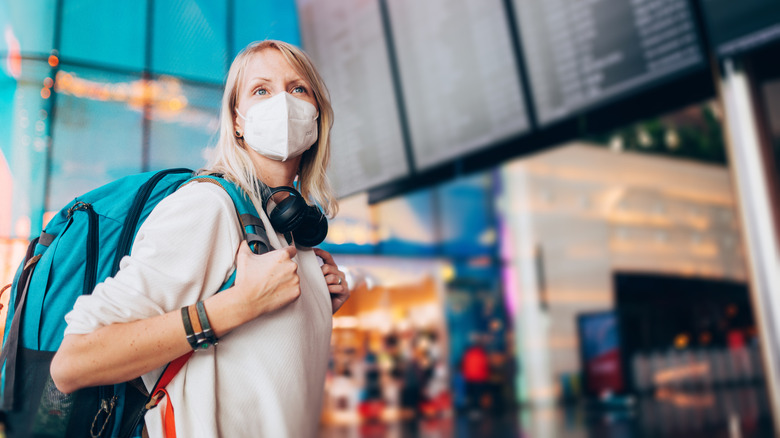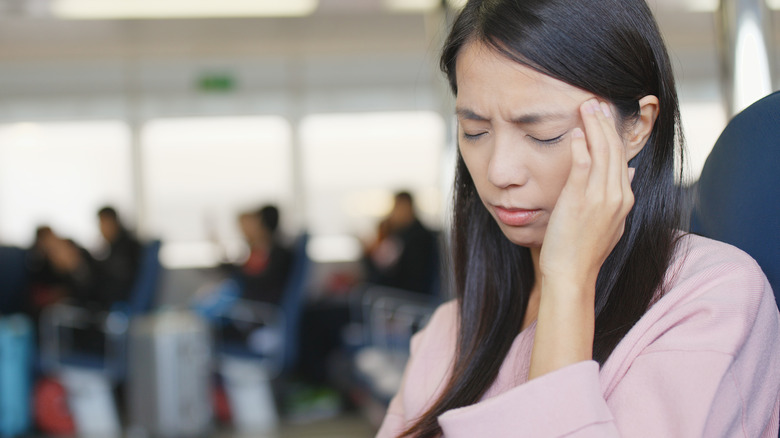Rick Steves Shares His Tips That Could Save You A Doctor's Visit While Traveling Around Europe
If you're traveling, you've probably prepped for a number of possible disasters. You may put your medication in your carry-on in case your luggage is lost or purchase travel insurance in case of flight or hotel cancellations. What you probably don't plan for is a trip to the doctor. No one wants to get sick or injured on vacation, and European travel pro Rick Steves has some advice on how to avoid a hospital visit.
On his website, Steves has some basic first-aid tips and sickness-prevention ideas to help out while traveling in Europe. For instance, many of us get headaches on vacation, and Steves tells us that if you need Tylenol (acetaminophen), you'll want to ask for paracetamol in Europe and many parts of the globe, which can also bring down a fever. He also reminds us that thermometers are measured in Celsius, so if you have a reading of 37 degrees Celsius, that's about 98.6 degrees Fahrenheit. Pharmacies are also easily identifiable by a green cross in Europe.
Another really common complaint on vacation is having blisters develop on your feet. When packing, skip the new shoes. If you haven't worn them before or they're not broken in, you won't know if they're comfortable for hours of sightseeing. If you already have blisters, you can pick up some moleskin or blister bandages in a pharmacy, but prevention is key. Steves tells us you can purchase anti-friction balm from a sports store, or you can try using petroleum jelly like marathon runners. You just put it on places that might chafe, like your heels and toes.
Rick Steves' tips for first aid to avoid a doctor visit while traveling
After walking for hours at a time, Steves tells us that Europe's cobblestone streets might make you a bit wobbly. If you get a sprained ankle, ice and elevate it on and off for 48 hours. You can ask your hotel for ice, but in a pinch, even really cold water in the tub can help with swelling, along with ibuprofen. If you get a cold, you can find pseudoephedrine, which is sold as Sudafed in America, but there may be restrictions on how much you can purchase. For allergies, try loratadine, or if you need an antihistamine, ask for diphenhydramine (Benadryl). If you get a cold, sleep can be your best friend to help you feel better. It's also going to help you adjust to the time difference — in fact, to help with jet lag, book a flight that gets into Europe in the afternoon.
Tummy issues are a possibility as well, whether your stomach's upset from food you're not used to or water that isn't treated the same way it is in the U.S. If you're struck with diarrhea, Steves suggests keeping your diet bland and staying hydrated, which can also help with constipation. If you tend to get motion sick, you can look for medication containing dimenhydrinate (which you may know as Dramamine) or meclizine (Bonine). Cruisers with seasickness swear by cinnarizine, and it is sold as Stugeron in the U.K. and Europe (and not at all in the U.S.). Finally, if you have a medical emergency in Europe, it's important to know the numbers to call, which are 999 in the U.K. and 112 in the EU.

